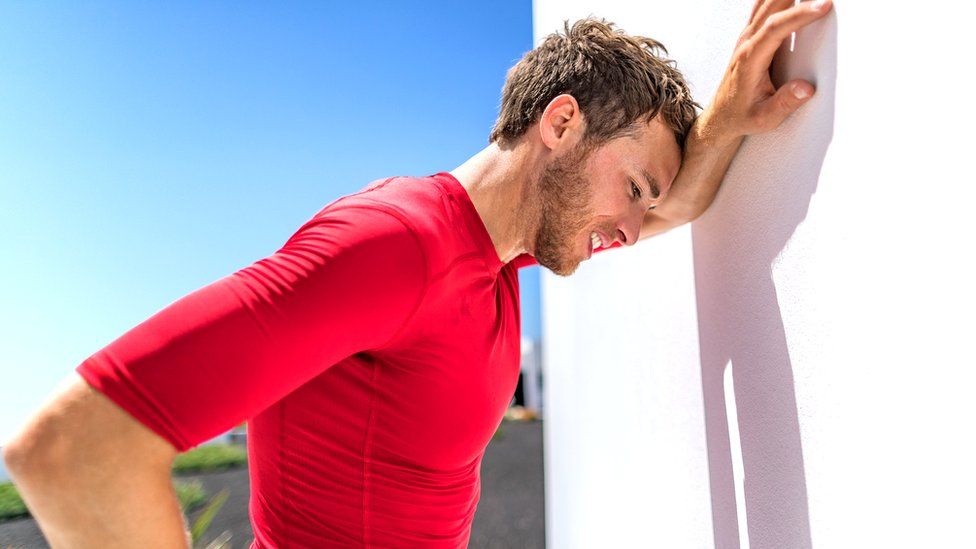ARTICLE AD BOX
By Michelle Roberts
Digital health editor
 Image source, Getty Images
Image source, Getty Images
During the hot weather, it can be easy to overheat.
While heat exhaustion is not usually serious, as long as you can cool yourself down, heatstroke is a medical emergency.
Here's what to look for and what to do.
Heatstroke or heat exhaustion?
Heat exhaustion happens when your body is becoming too hot and struggling to regulate or cope.
It can affect anyone, including fit and healthy people - especially if they are doing strenuous exercise in high temperatures or have been drinking alcohol in the sun all day. It can come on quickly, over minutes, or gradually, over hours.
The symptoms you will feel are your body's way of warning you to cool down, fast.
An obvious sign is excessive sweating, as well as feeling very hot and unwell with it.
- a headache
- dizziness and confusion
- loss of appetite and feeling sick
- cramps in the arms, legs and stomach
- fast breathing or pulse
- a temperature of 38C or above
- being very thirsty
Young children, who might not be able to tell you about how they are feeling, may become floppy and sleepy.
Heat exhaustion can turn into heatstroke, which is an emergency. Get urgent medical help.
The signs to watch for and quickly act on:
- feeling unwell after 30 minutes of resting in a cool place and drinking plenty of water
- not sweating even while feeling too hot
- a temperature of 40C or above
- fast breathing or shortness of breath
- feeling confused
- a fit (seizure)
- loss of consciousness
- not responsive
Older adults and young infants, as well as people with long-term health conditions, are particularly at risk.
The body's ability to regulate its temperature is not fully developed in the young and may be reduced by illness, medications or other factors in older adults. Being overweight or obese may also make it harder to cool down.
What to do
If someone has heat exhaustion:
- get them to rest in a cool place - such as a room with air conditioning or somewhere in the shade
- remove any unnecessary clothing, to expose as much of their skin as possible
- cool their skin - use whatever you have available, a cool, wet sponge or flannel, spray water, cold packs around the neck and armpits, or wrap them in a cool, wet sheet
- fan their skin while it is moist - this will help the water to evaporate, which will help their skin cool down
- get them to drink water - sports or rehydration drinks are fine too
Stay with them until they are better.
They should start to cool down and feel better within 30 minutes. If in any doubt, seek help.

 2 years ago
35
2 years ago
35








 English (US) ·
English (US) ·